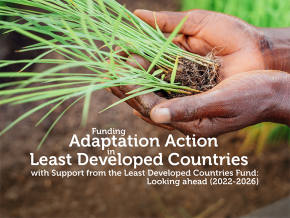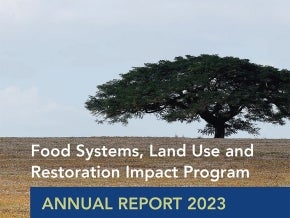
Combating climate change and the throwaway economy could achieve a leap in prosperity
In the past few months, I have heard Sir David Attenborough, and believe him when he says the next 10 years are make-or-break time for environmental stability on this planet.
I have heard Greta Thunberg, and share her conviction that we are in the midst of a climate emergency. I have also heard the naysayers – those who dismiss luminaries and young campaigners alike as cult members and catastrophists – and encourage them to think again.
Philips is a health technology company. My job as chief executive is to lead our mission to improve lives around the world against the backdrop of these great challenges. Clearly, it would be somewhat contradictory to pursue this aim if, in the process, you damaged lives by polluting and destroying the environment.
At the 2015 Paris climate summit, Philips committed to making its operations carbon-neutral and to using only renewable electricity by 2020.
We are improving access to care with novel technologies and business models, such as lend-lease – where we take back equipment, upgrade it and refurbish it for another customer – because we recognise that good health is inherent to sustainable socio-economic engagement.
We are redoubling our efforts to entrench regenerative circular-economy practices, which aim to use resources as long as possible, in contrast to the old throwaway linear economy, throughout our business.
In recent years we have set ourselves stringent targets. At the same time, we have realised that, quite apart from the environmental imperative of decoupling economic growth from the ever-rising consumption of resources, circular business models represent excellent commercial opportunities.
Preventing climate change will cost a fraction of the expense of dealing with the damage it would cause. Indeed, combating it is an opportunity to achieve another leap in prosperity.
Accenture estimates that going circular stands to add $4.5trn in value to the global economy – and without the damaging effects on the global commons inflicted by historical economic development.
I had a call recently with my top leaders where we discussed that Philips would add significantly to its revenue if we uninstalled all the medical systems set to come to the end of their current lifecycle this year, and upgraded and/or replaced them as appropriate.
We want to ensure that, by 2020, our customers are able to return all large medical equipment to us once it has reached the end of its tenure. Our goal is to extend this possibility to other medical devices by 2025.
We have some changes to make, especially when it comes to designing and building things in a modular fashion that will bring more standardisation and harmonisation across our portfolio. With these adjustments in place, we will be able to repair and upgrade more easily, and reuse and recycle more efficiently.
Our customers will also have to change mindsets. Markets still expect a focus on the sale of new things, and some governments even prohibit the resale of used or refurbished medical equipment.
I greatly support the public sector leading the shift to carbon neutrality and the circular economy. Carbon pricing will contribute much to achieving these. Governments should recognise the opportunity for more sustainable consumption that comes from appropriate systemic changes. These are bound to spur innovation.
I am proud that Philips is a leader in sustainability, but the biggest impact in any sphere comes from collective action on a global scale. That is why Philips led the launch of the Platform for Accelerating the Circular Economy (PACE) in 2017 along with the World Economic Forum, the Global Environment Facility and UN Environment.
The PACE global leadership group now includes more than 50 chief executives, government ministers and leaders of international organisations. We support cross-sector circular-economy initiatives, share knowledge gained from them, and convene leaders to advance progress.
Initial focus areas include plastics, food and bio-economy, business models, and electronics, including e-waste.
The world’s population generates around 50 million tonnes of e-waste each year. With no action, this will double to 120 million tonnes annually by 2050.
We are developing a circular management programme to address the health and environmental threat posed by the landfill dumps where much of it ends up. And, by establishing waste collection schemes in countries such as Nigeria, we are also helping to generate commercial activity.
Humankind, as a species, is often resistant to change, even when the evidence for its benefits is plain to see. Instead of using more and more resources, we need to repurpose, reuse and recycle the items we have already made.
Building a global circular economy is not just an environmental imperative, but a great opportunity for companies and individuals everywhere to enter a new phase of health and prosperity.
This piece was originally published for the GEF-Telegraph Partnership.


